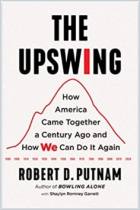Join getAbstract to access the summary!

Join getAbstract to access the summary!
Tom Allen
Dangerous Convictions
What's Really Wrong with the U.S. Congress
Oxford UP, 2013
What's inside?
To diagnose what’s wrong with Congress, recognize the ideology that underscores the partisan gridlock.
Recommendation
Public approval of the US Congress has reached historic lows. To understand the reasons, heed these reflections from one of its former members. Tom Allen represented the First Congressional District in Maine in the House of Representatives for 12 years. From 1997 to 2009, he witnessed few legislative achievements – more often, he saw two political parties at a perpetual impasse. Since leaving Congress, Allen has reflected on the roots of that dysfunction. He places much of the blame at the intersection of Republican ideas about individualism and small government and Democratic Party ideas about government’s role in helping people. Allen shares his experience in this thoughtful, while clearly pro-Democratic Party, treatise. He suggests remedies, none of which will be easy or could happen overnight. While always politically neutral, getAbstract suggests that observers with varying philosophies will find food for discourse here.
Summary
About the Author
Tom Allen is a former two-term Democratic congressman from the state of Maine.




















Comment on this summary
One thing that stood out was that most things democrat were put in like this while most things republican were "put in like this".
I don't find the heavy handed approach to quotation marks, which I read largely as ironic/sarcastic/etc., to be effective applied in this manner.
I think both parties are too blame and both are (at least partially) incorrect. One flaw to point out is that the republican party's tendency towards individualism bars cooperation. Read "The Evolution of Cooperation" (found on Get Abstract) and you can certainly see how cooperation can be one of the most self-interested things people can do.
As to the quotation marks, I hasten to assure you that there is no irony or sarcasm whatsoever.
Any time that getAbstract uses material that is verbatim from the book we are abstracting, we put it in quotation marks. It's that simple. It is important to us that our readers know that while we are, in fact, neutral politically (after all, our home base IS Switzerland), we are very passionately opposed to plagiarism.
Thank you very much for your comments.
Erica Rauzin
Managing Editor
getAbstract